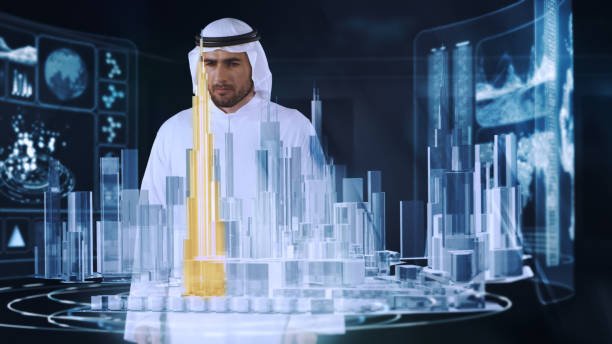Dubai has long been a global leader in innovation, and its blockchain strategy is no exception. Launched in 2016 by H.H. Sheikh Hamdan bin Mohammed bin Rashid Al Maktoum, the initiative aims to position Dubai as the world’s first blockchain-powered government by 2030.

This ambitious plan seeks to increase efficiency, reduce costs, and improve transparency across key sectors. Let’s explore how Dubai is using blockchain technology to revolutionize governance, business, and everyday life.
What is the Dubai Blockchain Strategy?
A collaboration between the Smart Dubai Office and the Dubai Future Foundation, the Dubai Blockchain Strategy is built on three key pillars:
1. Government Efficiency
By embracing blockchain, Dubai aims to streamline government processes, eliminate paper-based transactions, and improve data security. The initiative could potentially save over 25 million hours of productivity annually and eliminate up to 1 billion documents that are traditionally processed through manual workflows.
2. Industry Creation
Dubai is not just embracing blockchain – it is nurturing an ecosystem that encourages blockchain-based businesses and startups. By providing a regulatory-friendly environment and support through accelerators such as the Dubai Future Accelerators and the Dubai International Financial Centre (DIFC), the city is positioning itself as a global hub for blockchain innovation.
3. International Leadership
Dubai’s strategy is not limited to domestic transformation. The emirate is actively working to shape international standards and protocols around the use of blockchain. Through global partnerships and cross-border pilot programs, Dubai is setting the tone for international blockchain governance.
Key Strategy Goals
- 100% Paperless Government by 2025
Dubai plans to convert all applicable government transactions to blockchain, dramatically improving service delivery and data verification. - Enhanced Transparency and Security
With the decentralized and tamper-proof nature of blockchain, data can be securely shared, verified, and stored across public services—reducing fraud and increasing public trust. - Increased Economic Impact
Blockchain adoption is expected to make a significant contribution to the UAE’s GDP, attract foreign investment, and spur the growth of new industries.
How Dubai Is Implementing Blockchain
1. Smart Dubai Initiative
Under the Smart Dubai umbrella, blockchain is being integrated into:
- Land Registry – Instant, fraud-proof property transactions.
- Healthcare – Secure patient records and streamlined insurance claims.
- Business Licensing – Faster approvals with smart contracts.
2. Dubai Blockchain Platform
A unified system that allows government and private organizations to develop and deploy blockchain solutions without having to build infrastructure from scratch.
3. Emirates Blockchain Strategy 2021
A UAE-wide expansion ensures federal and local governments adopt blockchain for:
- Digital Identity – Secure, decentralized ID verification.
- Supply Chain Tracking – Reducing fraud in trade and logistics.
Success Stories and Milestones
- 2020: Dubai’s Courts Department launched blockchain for legal contracts.
- 2021: Dubai Electricity and Water Authority (DEWA) became the world’s first government utility to run on blockchain.
- 2023: More than 20 government organizations adopted blockchain solutions.
The Future: Blockchain and Dubai’s Vision for 2030
By the end of the decade, Dubai aims to:
- Process 100% of government transactions via blockchain.
- Attract $3 billion in blockchain investment.
- Become a global leader in smart city innovation.
Dubai’s blockchain strategy is not just about technology – it’s about creating a smarter, more efficient, and more trusted future. As the city continues to implement and refine its vision, it is paving the way for a new era of digital governance and economic growth. For innovators, investors, and policymakers, Dubai offers a compelling look at how blockchain can transform the fabric of modern cities.
